Procurement Audit: The Ultimate Guide
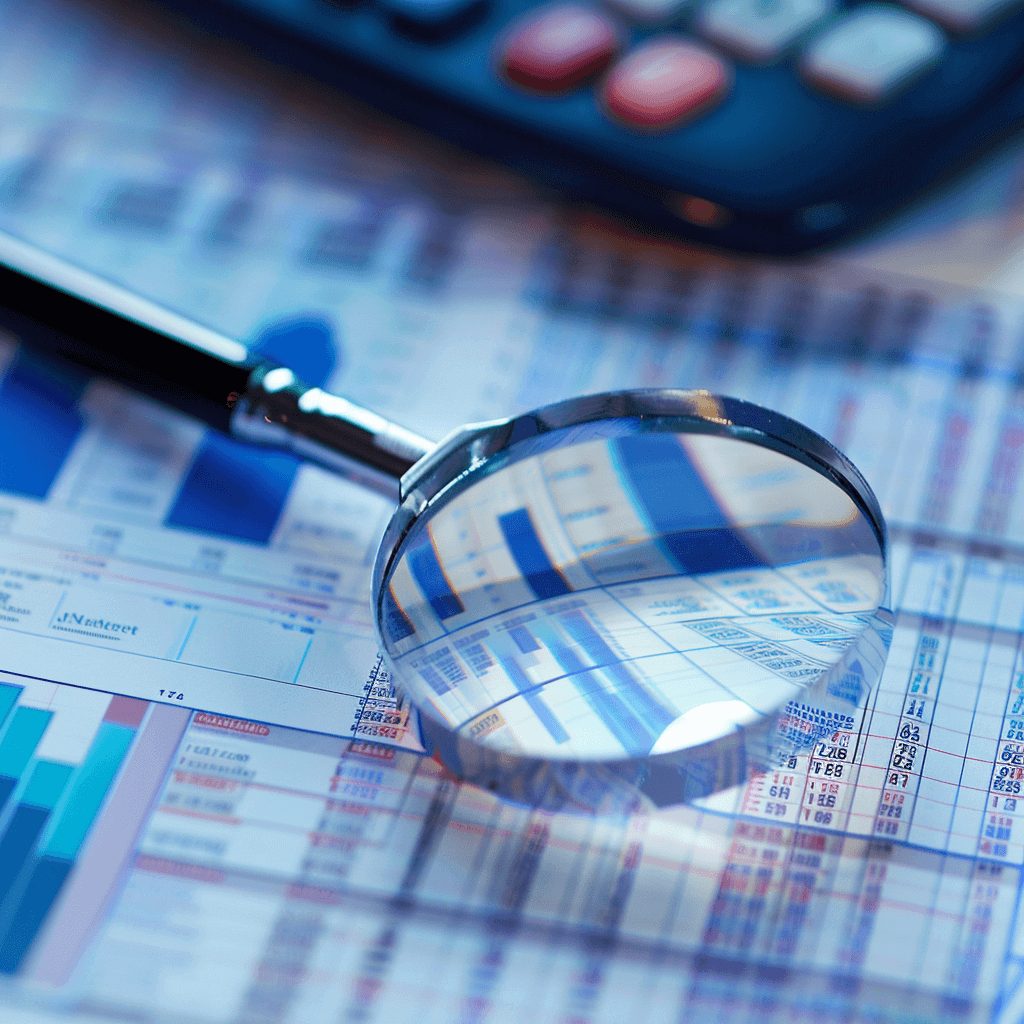

As a procurement professional, you’re no stranger to the myriad challenges you face every day, from ensuring transparency and combatting fraud to navigating complex procurement regulations.
What if we told you that there is a beacon of clarity and control amidst this complexity?
Procurement audits.
Today, we will dive into their essence: What are procurement audits? Why are they essential? Who can perform them?
Besides answering these questions, we’ll explore the tools at your disposal to streamline the auditing process.
By the end, you’ll be armed with comprehensive knowledge and ready to embrace procurement audits to tackle the challenges we mentioned above.
Let’s get started.
Procurement audits are like a comprehensive health check-up for your organization’s procurement processes, practices, and controls.
The goal of this detailed health check-up is to identify strengths, weaknesses, and areas for improvement within the procurement function, as well as ensure compliance, prevent fraud, and mitigate other procurement risks.
After every such check-up, you should be able to answer these critical questions:
Now, to answer all these, the audit requires you to analyze a wide range of procurement data, including:
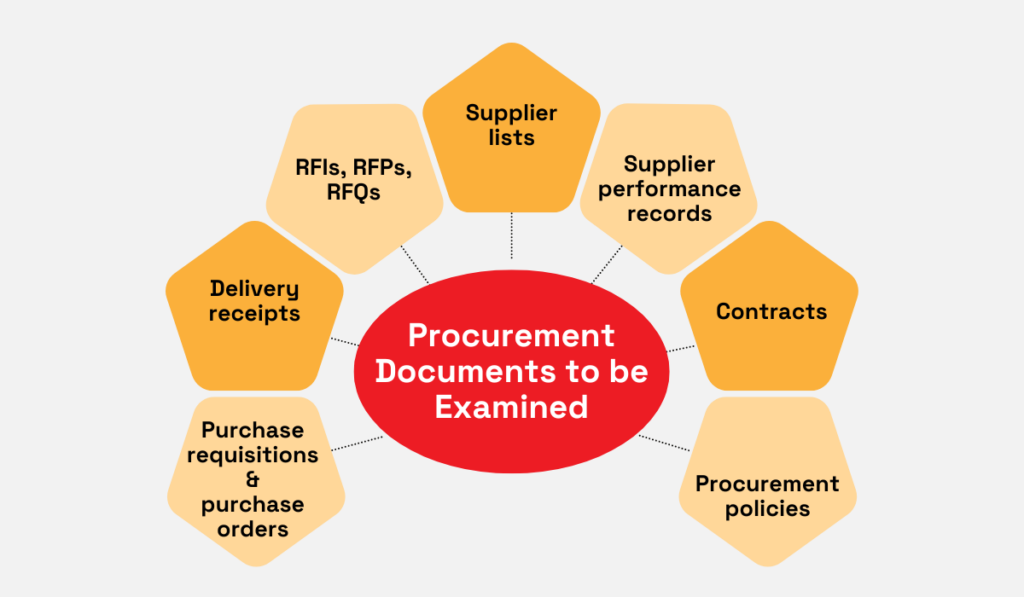
Source: Veridion
Each type of this procurement data is important as it gives insights into different aspects of procurement performance and compliance.
For example, analyzing purchase requisitions and orders identifies patterns of spending and potential instances of non-compliance with procurement policies.
Going through RFIs, RFPs, and RFQs sheds light on your vendor selection processes and checks if fair and transparent procurement practices are followed.
Furthermore, analyzing supplier performance records enables you to evaluate vendor reliability and adherence to contractual terms, while historical data provides context for identifying trends and patterns over time.
Lastly, an audit helps you identify various risks associated with procurement activities, such as fraud, corruption, or even supply chain disruptions.
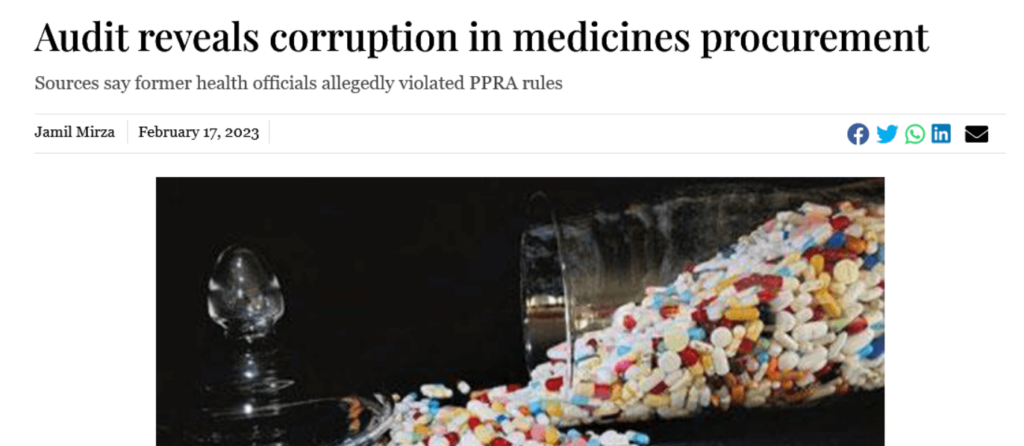
Source: Tribune
And then it makes it easier to implement measures that strengthen internal controls and prevent fraudulent activities from happening again:

Source: Tribune
So—when you regularly conduct procurement audits, you can identify areas for improvement, enhance efficiency, ensure legal compliance, and mitigate risks more effectively.
This makes them indispensable tools, wouldn’t you agree?
As such, procurement audits should be conducted regularly.
Industry experts recommend that audits be performed quarterly, in addition to being conducted each time a business changes its policies and regulations or onboards a new supplier.
It would also be smart to schedule audits to coincide with specific milestones or events, such as the end of the fiscal year or major procurement initiatives.
When it comes to the importance of procurement audits, several reasons stand out:
Still, let’s dive deeper into why procurement audits are important by exploring how they enhance supply chain visibility, reduce costs, and ensure regulatory compliance.
Supply chain visibility is the key to smooth operations, lower costs, risk mitigation, and meeting customer demands.
And you, of all people, know how crucial—but sometimes difficult, too—it is to maintain visibility throughout your supply chain.
Luckily, procurement audits are one more efficient tool for enhancing this visibility.
Let’s see why.
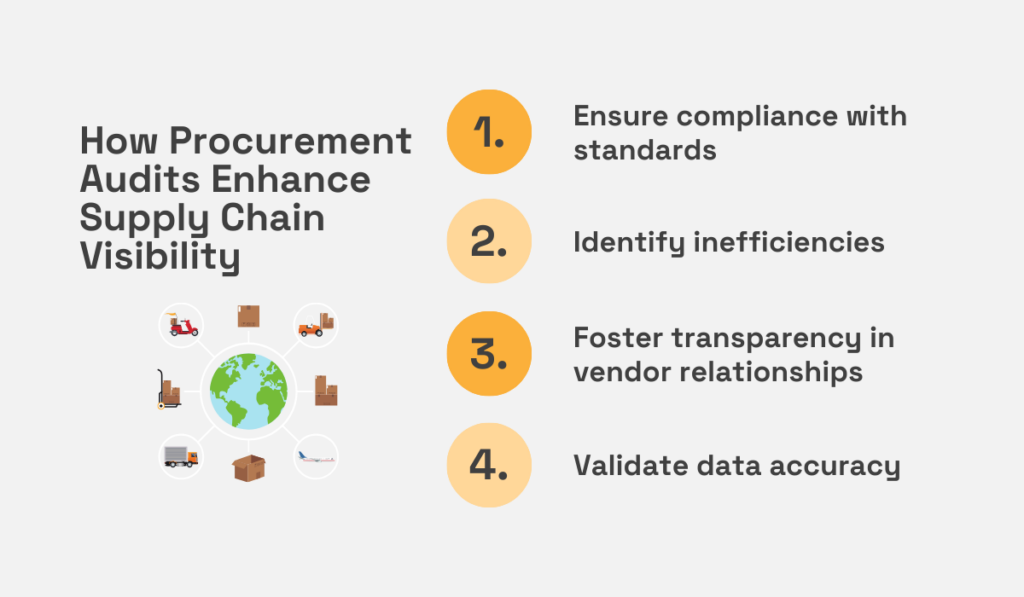
Source: Veridion
First and foremost, procurement audits check and then help you work on ensuring compliance with procurement regulations and industry standards.
By doing so, they lay a solid foundation for transparent and consistent operations, which is the first step in gaining visibility.
Beyond compliance, regular auditing uncovers inefficiencies within procurement processes.
Whether it’s delays in sourcing materials or discrepancies in inventory management, audits pinpoint these areas for improvement, helping you streamline operations and reduce costs.
Moreover, audits dive into vendor relationships, assess performance, and, again, promote transparency and accountability.
By fostering stronger partnerships with suppliers, you enhance communication and collaboration, which further improves supply chain visibility and efficiency.
Audits also have an important role in validating procurement data accuracy.
They ensure that the data captured in procurement systems is reliable.
This matters because reliable and accurate data allows you to make informed decisions and track products and services across your supply chains more effectively.
Simply put, procurement audits provide organizations with the insights needed to navigate the complexities of the supply chain, driving efficiency, transparency, and success.
Furthermore, procurement audits are a powerful tool for reducing costs.
And it makes sense why.
Through careful examination of each step of the procurement process, audits reveal where processes are overly complicated or burdened with unnecessary steps.
By simplifying these processes, you not only save time but also reduce costs associated with labor and resource allocation.
On top of that, audits uncover instances of maverick spending, where teams deviate from established procurement procedures to make purchases independently.
This unauthorized spending can be remarkably costly.
For instance, an average mid-sized company expends $322,000 annually on untracked spending, jeopardizing potential bulk-purchasing discounts and negotiated savings.
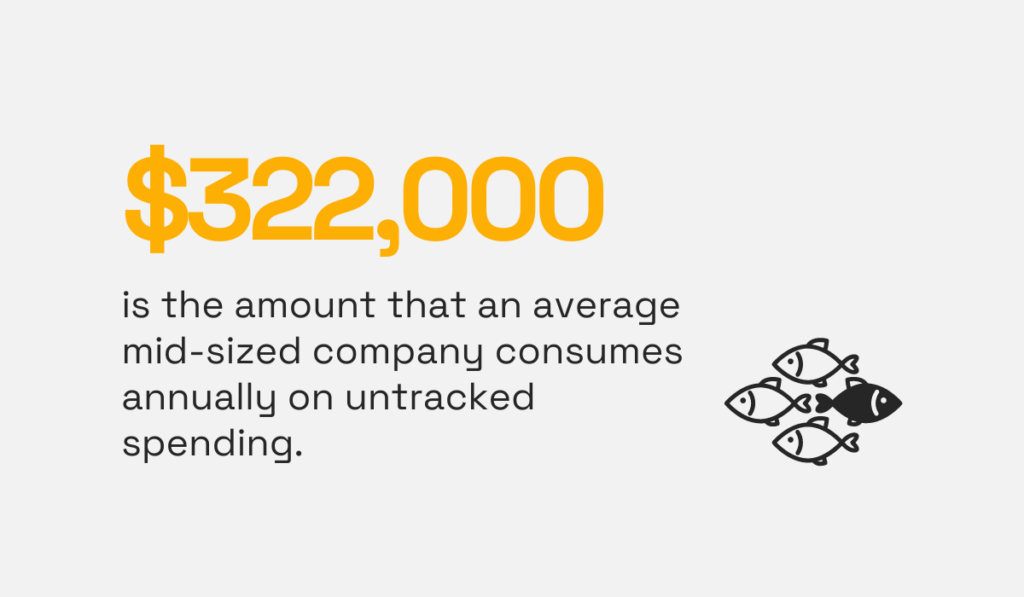
Illustration: Veridion / Data: Order.co
Beyond the financial implications, maverick spending poses serious risks such as compliance issues and reduced spend visibility.
However, by identifying and addressing maverick spending through procurement audits, you regain control over your procurement expenditures, ensure that every dollar is spent strategically, and prevent these risks.
Audits also highlight opportunities for cost optimization.
For example, they may reveal instances where you purchase redundant or overpriced products when more affordable alternatives are available.
Additionally, procurement audits enable you to improve your negotiating leverage with suppliers.
By identifying instances where substantial volumes of purchases are made from suppliers without existing contracts, you can use this information to negotiate better terms and pricing agreements.
In the public sector, the benefits of procurement audits are equally significant.
For instance, the audit conducted by Britain’s National Audit Office revealed billions of pounds in potential savings through improved procurement practices.

Source: Financial Times
These savings result from various initiatives, including increasing competition in public procurement processes, preventing fraud, and cracking down on tax evasion.
To recap, procurement audits showcase where to cut costs and optimize procurement practices.
By identifying inefficiencies, controlling maverick spending, seizing cost optimization opportunities, and enhancing negotiating leverage, you can reduce costs while maximizing the value of your procurement operations.
Ensuring compliance with regulations is a fundamental aspect of procurement management, and procurement audits play a vital role in achieving this goal.
Regularly reviewing your procurement processes, supplier performance, and contracts is crucial for verifying that suppliers adhere to their contractual obligations.
By doing so, you uphold the integrity of your procurement procedures and ensure that your organization remains compliant with applicable regulations.
For instance, when engaging in global procurement, strict policies must be followed to comply with legal requirements.
Not adhering to these policies can lead to legal repercussions, such as fines or penalties, and jeopardize the organization’s reputation and credibility.
Moreover, procurement audits help uncover non-compliance within the organization itself.
For example, audits may reveal instances where internal stakeholders manipulate standards to favor certain vendors, circumventing the agreed-upon benchmarks.
By identifying and addressing such deviations, procurement audits help maintain fairness, transparency, and integrity in the procurement process.
A compelling illustration of the importance of procurement audits in ensuring compliance comes from a report by the Chinese National Audit Office on the Beijing-Shanghai High-Speed Railway project.

Source: Reuters
The report uncovered widespread fraud, waste, and irregularities in procurement practices.
Auditors identified instances where bidding processes were manipulated and materials were bought from non-winning bidders, resulting in significant financial losses and legal implications.
With regular procurement audits, organizations can prevent such misconduct and ensure adherence to regulations.
Additionally, audits assess documentation compliance, ensuring accurate and comprehensive record-keeping throughout the procurement process.
They also evaluate ethical standards, environmental and social responsibility, and adherence to anti-corruption measures.
All in all, by scrutinizing procurement practices, audits mitigate the risk of fraud, mismanagement, and non-compliance, thereby safeguarding your organization’s interests and reputation.
Finally, procurement audits provide recommendations for continuous improvement, enhancing procurement processes and strengthening compliance measures over time.
When it comes to the crucial task of conducting procurement audits, it’s essential to consider who should take the lead.
While you might initially consider yourself for the role, there are important factors to weigh before making a decision.
Certainly, your familiarity with your procurement policies and procedures positions you as a strong candidate.
However, it’s crucial to question whether your involvement in procurement could potentially cloud your judgment.
After all, objective assessment is the key to ensuring the integrity of the audit process.
That’s why, to maintain impartiality, it’s wise to involve other experts or even senior management in the audit process.
Their fresh perspectives can ensure a thorough and unbiased examination of procurement practices.
In larger organizations, audits are conducted by internal audit departments with professionals who are well-versed in risk management and compliance.
Alternatively, you can also go the external route and hire independent auditors.
Sure, this might cost a bit more, but their unbiased perspective can be worth its weight in gold, especially in tricky or sensitive situations.
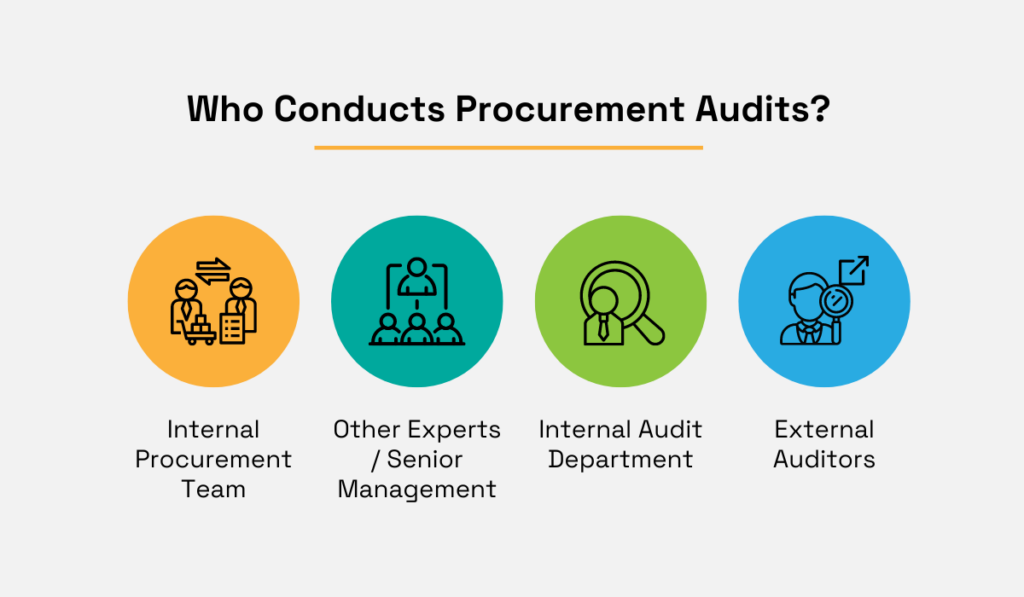
Source: Veridion
Ultimately, the decision on who should conduct your procurement audits depends on various factors such as organizational size, available resources, and specific needs.
However, a collaborative approach that combines internal and external expertise often yields the most comprehensive and credible audit results, ensuring adherence to regulatory requirements and promoting best practices in procurement management.
Having the right tools at your disposal when auditing procurement can make all the difference.
Let’s delve into some essential tools that can streamline the audit process and enhance its efficiency and effectiveness.
First up is procurement management software.
This powerhouse tool is the backbone of efficient procurement processes.
With features like centralized document management, automated workflows, and real-time tracking of procurement activities, this software enables you (or chosen auditors) to easily access and review relevant procurement data.
Additionally, advanced procurement management software often includes built-in reporting and analytics capabilities, allowing auditors to generate comprehensive reports and identify areas for improvement.
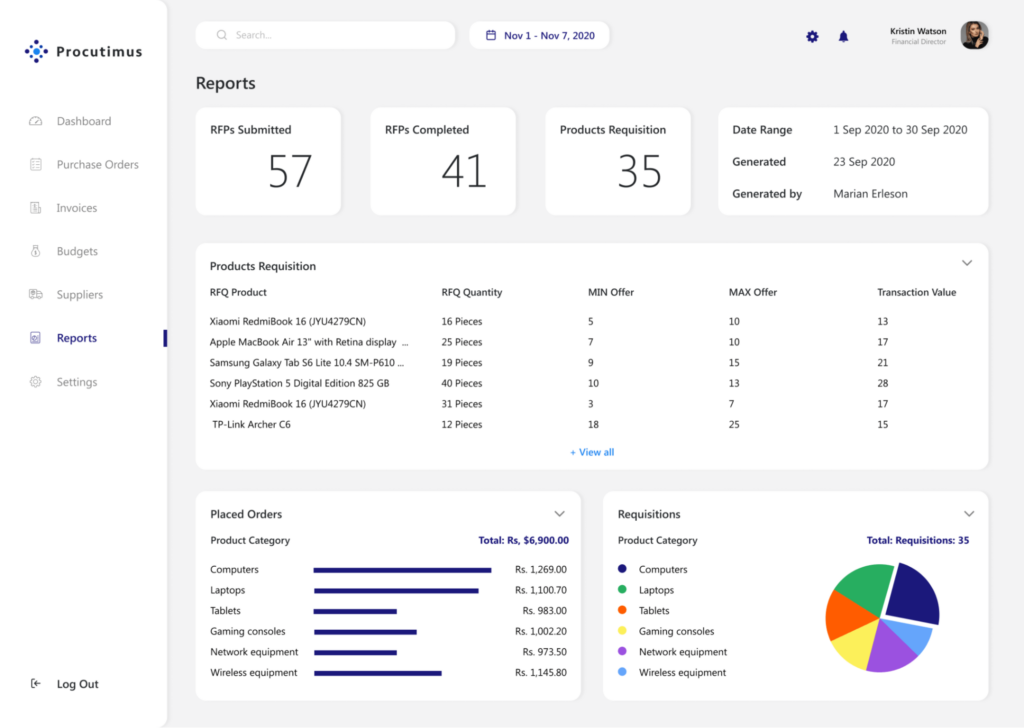
Source: DDI Development
But what about all that data generated by procurement software?
Well, this is where data analytics tools come to your rescue.
With the help of AI and machine learning, these tools analyze procurement data to identify patterns, anomalies, and potential risks.
And they do so quickly and efficiently.
By analyzing spending patterns and procurement performance metrics, you can quickly gain insights into the overall health of the procurement function.
This both saves you time and enables you to prioritize audit activities, focus on high-risk areas, and drive continuous improvement in procurement processes.
Another critical tool we must mention is compliance monitoring solutions.
They are essential for ensuring adherence to procurement policies, regulations, and internal controls, and, therefore, make monitoring them through audits much easier!
Especially because these tools send real-time alerts for any irregularities, track approval workflows, and monitor procurement activities.
With these tools watching your back, you can rest assured that your audits are thorough and your processes are squeaky clean.
One tool with similar capabilities is our supplier sourcing enabler—Veridion.
This comprehensive platform not only helps you discover the most reliable suppliers through a vast database but also alerts you to any changes in supplier activities.
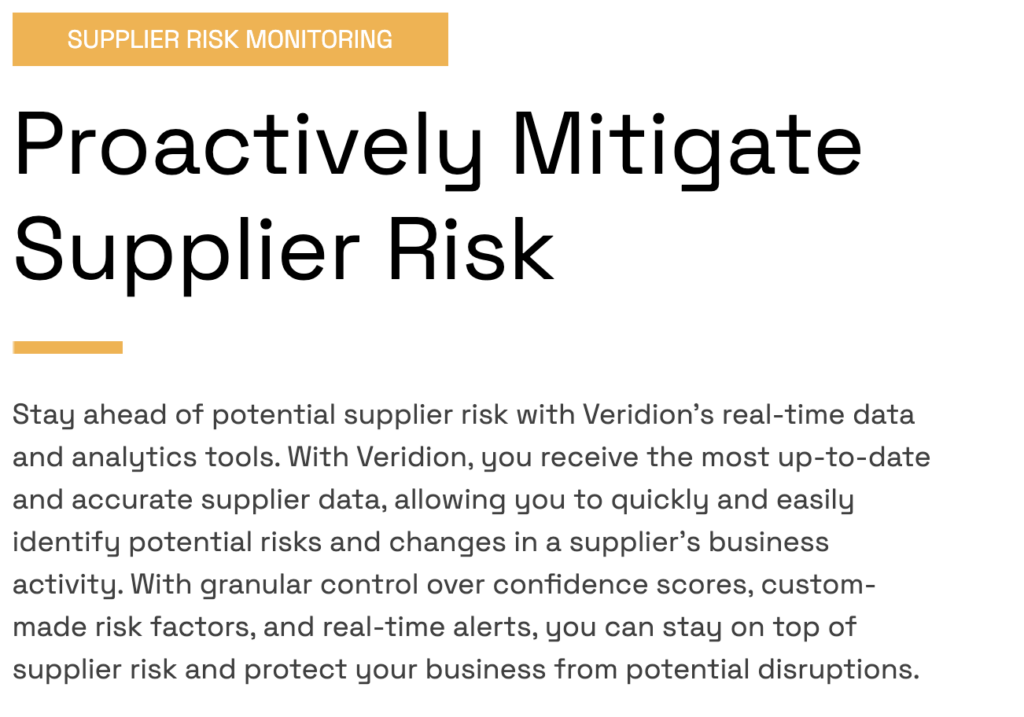
Source: Veridion
Whether it’s a lost certification or a drop in production, Veridion ensures you’re promptly notified, allowing you to mitigate risks before they escalate.
In summary, leveraging procurement automation tools, procurement management software, data analytics tools, compliance monitoring tools, and supplier data platforms can significantly enhance the effectiveness of procurement audits.
When auditors have the tools they need to access and analyze relevant data, identify potential risks and compliance issues, and make informed decisions, procurement audits become fully transparent and efficient.
As we saw, procurement audits, indeed, are a beacon of clarity amidst the complexities of procurement management.
They help you ensure compliance, reduce costs, and enhance supply chain visibility.
By conducting regular procurement audits, you can streamline procurement processes, mitigate risks, and optimize resource allocation.
And you don’t have to do it on your own.
Whether by inviting external auditors or helping yourself with procurement management software, data analytics tools, or compliance monitoring systems, procurement audits remain essential for maintaining the health and efficiency of your procurement practices.
So, embrace them.